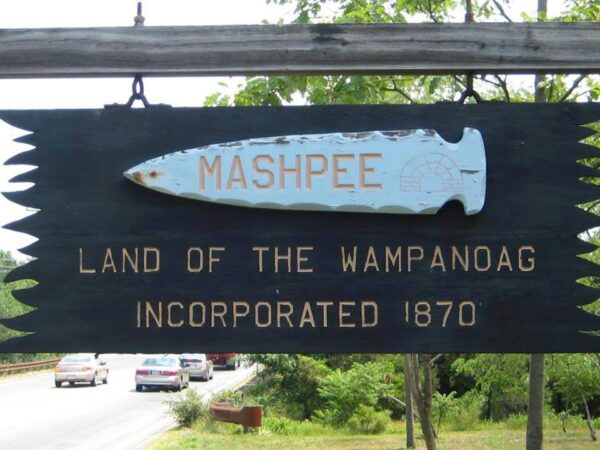
- Details
- By Levi Rickert
WASHINGTON — On Friday, a federal judge ruled in favor of the Mashpee Wampanoag Tribe in its battle with the Trump administration to retain its tribal land in trust.
Judge Paul L. Friedman of the U.S. District Court for the District Of Columbia ruled that the Department of Interior’s 2018 decision that the Tribe was not under federal jurisdiction in 1934 was “arbitrary, capricious, an abuse of discretion and contrary to law.”
In doing so, Friedman effectively ruled that the DOI incorrectly applied its own guidelines when it decided the Mashpee tribe did not qualify to have its land taken into federal trust.
Friedman ordered the Interior Department to maintain the reservation status of the tribe’s 321 acres of land until the department issues a new decision on remand over whether the tribe qualifies as “under federal jurisdiction” in 1934.
“This is a huge victory for our tribe that met the Pilgrims 400 years ago on Plymouth Rock,” Mashpee Wampanoag Tribe Chairman Cedric Cromwell said in a telephone interview with Native News Online on Friday evening. “And, we are still here.”
On March 30, 2020, the Mashpee Wampanoag Tribe filed an emergency injunction and temporary restraining order in the Federal District Court for the District of Columbia after the Bureau of Indian Affairs informed tribe’s Chairman Cedric Cromwell that U.S. Dept. of Interior (DOI) Secretary David Bernhardt was ordering Cromwell to disestablish his tribe’s reservation.
“Today, the DC District Court righted what would have been a terrible and historic injustice by finding that the Department of the Interior broke the law in attempting to take our land,” Cromwell said on a post to the Tribe’s website.
“While we are pleased with the court's findings, our work is not done. The Department of Interior must now draft a positive decision for our land as instructed by Judge Friedman. We will continue to work with the Department of the Interior — and fight them if necessary — to ensure our land remains in trust,” Cromwell further wrote in his post Friday night.
More Stories Like This
50 Years of Self-Determination: How a Landmark Act Empowered Tribal Sovereignty and Transformed Federal-Tribal RelationsLancaster County to Recognize Conestoga-Susquehannock Tribe on Massacre Anniversary
How the Gaming Economy Helps Tribes Navigate Shifting Policies
Prairie Band Potawatomi Nation Fires Executives After ICE-Related Contract Sparks Outcry
Tlingit Haida Tribal Business Corporation Clarifies Federal Contracting Work
Help us defend tribal sovereignty.
At Native News Online, our mission is rooted in telling the stories that strengthen sovereignty and uplift Indigenous voices — not just at year’s end, but every single day.
Because of your generosity last year, we were able to keep our reporters on the ground in tribal communities, at national gatherings and in the halls of Congress — covering the issues that matter most to Indian Country: sovereignty, culture, education, health and economic opportunity.
That support sustained us through a tough year in 2025. Now, as we look to the year ahead, we need your help right now to ensure warrior journalism remains strong — reporting that defends tribal sovereignty, amplifies Native truth, and holds power accountable.
 The stakes couldn't be higher. Your support keeps Native voices heard, Native stories told and Native sovereignty defended.
The stakes couldn't be higher. Your support keeps Native voices heard, Native stories told and Native sovereignty defended.
Stand with Warrior Journalism today.
Levi Rickert (Potawatomi), Editor & Publisher

